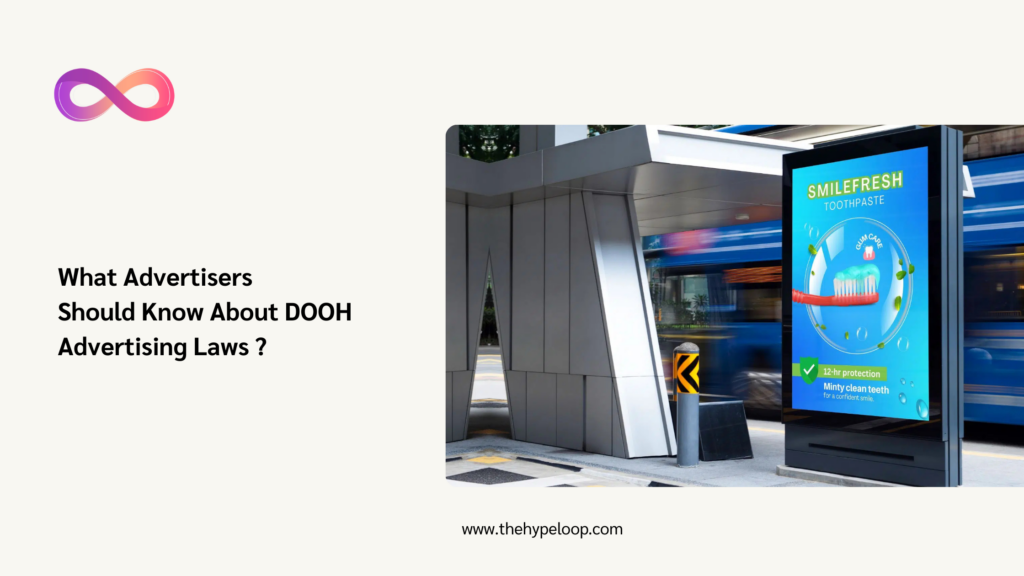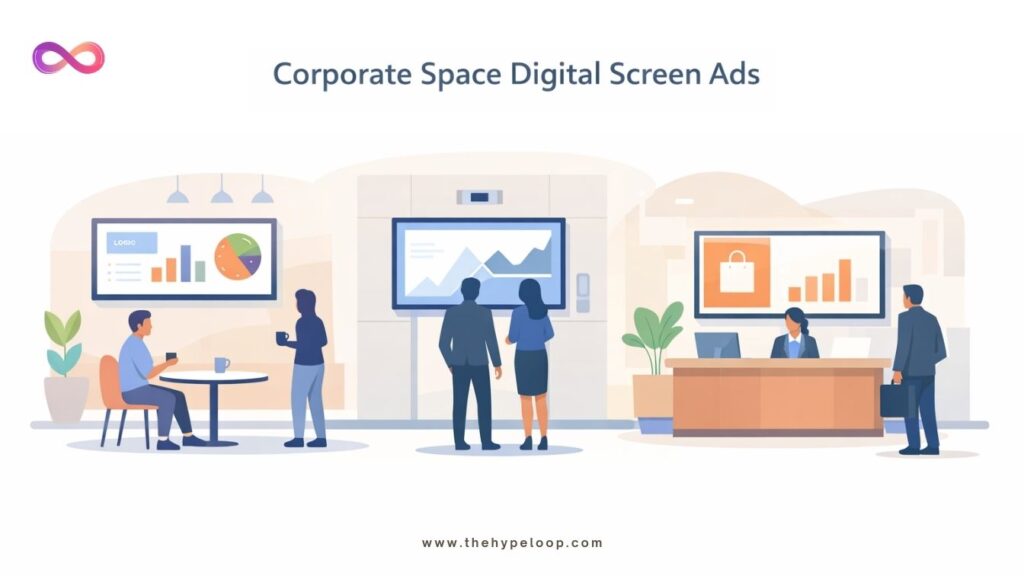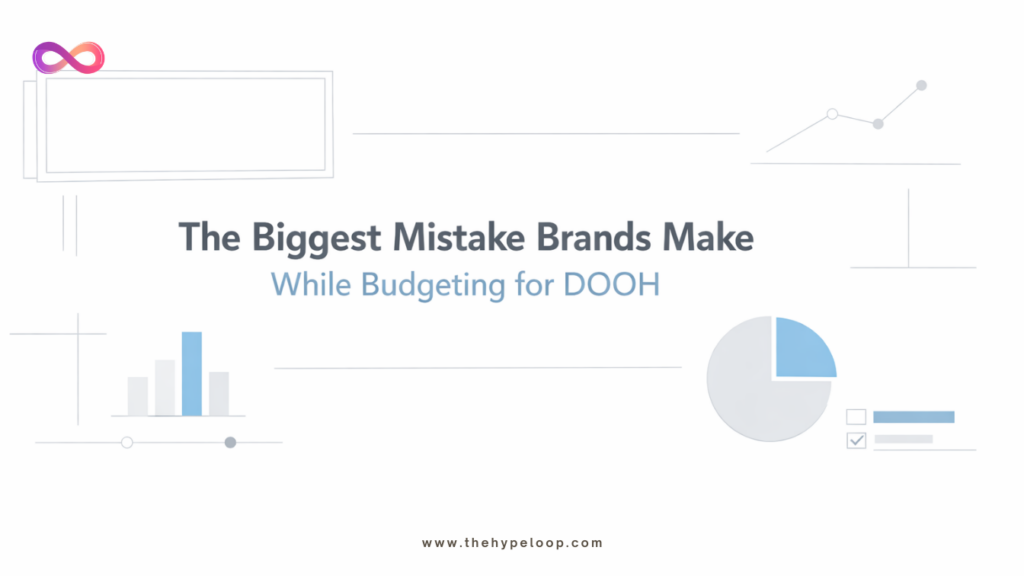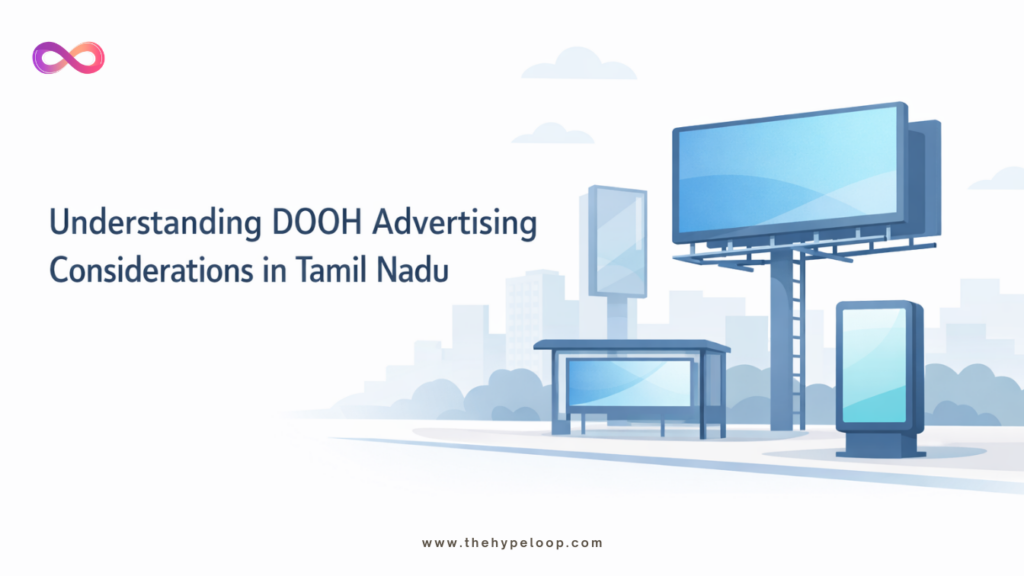The rise of DOOH advertising—or digital out-of-home advertising—has opened up powerful ways for brands to reach people in real-world environments. From shopping malls to highways and coworking spaces, digital screens are everywhere. However, as brands rush to leverage these screens for exposure, understanding the legal aspects becomes essential.
In this guide, we’ll explore what is DOOH, the most important legal considerations in digital OOH advertising, and how Hype Loop ensures your campaigns stay compliant, impactful, and easy to manage.
🚦 What Is DOOH Advertising, and Why Is It Regulated?
DOOH stands for digital out-of-home advertising. It refers to dynamic digital ads displayed in public places—like LED billboards, digital kiosks, mall screens, elevators, cafes, and gyms. Unlike traditional OOH, DOOH offers better targeting, real-time updates, and creative flexibility.
However, because these ads are placed in public spaces, they are subject to legal rules around:
- Location-based permissions
- Content restrictions
- Data collection and audience tracking
- Environmental and brightness regulations
- Commercial licensing and fees
Not complying with these laws can result in ad takedowns, fines, or damage to your brand reputation.
Hype Loop, a trusted DOOH advertising platform, is built to help advertisers navigate these rules easily, keeping campaigns effective and legally secure.
⚖️ Key Legal Considerations in DOOH Advertising
1. Local Permissions and Zoning Regulations
Before any screen can display a DOOH ad, it must comply with local municipal laws. These vary city-to-city and often include:
- Screen placement guidelines (e.g., distance from roads)
- Approved hours for ad playback
- Permits for commercial advertising in residential zones
How Hype Loop helps:
Hype Loop only lists pre-approved and verified screens on its platform. Advertisers never need to worry about location legality—we’ve already handled the compliance checks.
2. Content Restrictions
Many regions restrict ads related to:
- Tobacco or alcohol
- Adult content
- Political material
- Offensive or culturally sensitive visuals
Additionally, public-facing screens may have brightness limits or rules on animation length.
How Hype Loop helps:
We flag any restricted content during campaign submission and provide feedback before approval. Our built-in screening system ensures your ad meets local laws before going live.
3. Advertising to Minors
In places like schools, playgrounds, or college campuses, advertisers must follow stricter rules about messaging. For instance, ads targeting minors must avoid:
- Excessive sugar, junk food, or unhealthy habits
- Age-inappropriate language or images
- Aggressive “Buy Now” CTAs
What Hype Loop does:
When you choose a location on Hype Loop, you can view the audience profile and area type. This allows brands to tailor messages accordingly, reducing compliance risks.
4. Copyright and Licensing
Using copyrighted images, music, or brand logos in DOOH ads without permission can lead to legal claims. Unlike social media, DOOH platforms operate in commercial spaces—so advertisers are held to a higher standard.
How Hype Loop helps:
We provide a Creative Guidelines Checklist to help you validate assets before uploading. Our system also supports uploading of proof-of-license for media files.
5. Data Privacy and Camera Use
Some digital screen advertising solutions integrate facial recognition or footfall tracking. In regions with GDPR, CCPA, or other privacy laws, collecting audience data must be disclosed and permission-based.
What Hype Loop does differently:
We prioritize privacy. Hype Loop does not use facial recognition or biometric tracking. Our analytics are aggregated and anonymized, offering powerful insights while maintaining user privacy.
6. Environmental Standards
Modern cities are implementing eco-friendly advertising laws to reduce light pollution and electricity use. Some DOOH locations must meet energy efficiency benchmarks.
How Hype Loop contributes:
We work with screen owners using LED-efficient tech and schedule content in sync with local environmental standards. You can also choose screens with low-energy certifications directly from the platform.
📌 Who Regulates DOOH Advertising?
Depending on the country and state, DOOH ads are regulated by:
- Local municipalities (urban planning & safety)
- Advertising Standards Councils (content rules)
- Environmental and energy departments
- Privacy regulators (for data handling)
With Hype Loop, you don’t need to research each regulator yourself. Our system and team handle the legal groundwork so you can focus on performance.
📲 What Is Hype Loop, and Why Should Advertisers Care?
Hype Loop is a platform that helps advertisers launch DOOH campaigns across high-impact digital screens in malls, offices, cafes, gyms, and residential areas. Think of it as your central dashboard to:
- Select screens by location or audience
- Upload and manage creatives
- Schedule campaigns with precision
- Track real-time performance
- Stay 100% legally compliant
Unlike traditional media buying, there are no middlemen, paperwork, or legal blind spots. Everything is automated, transparent, and optimized for speed and compliance.
✅ How Hype Loop Simplifies DOOH Advertising Compliance
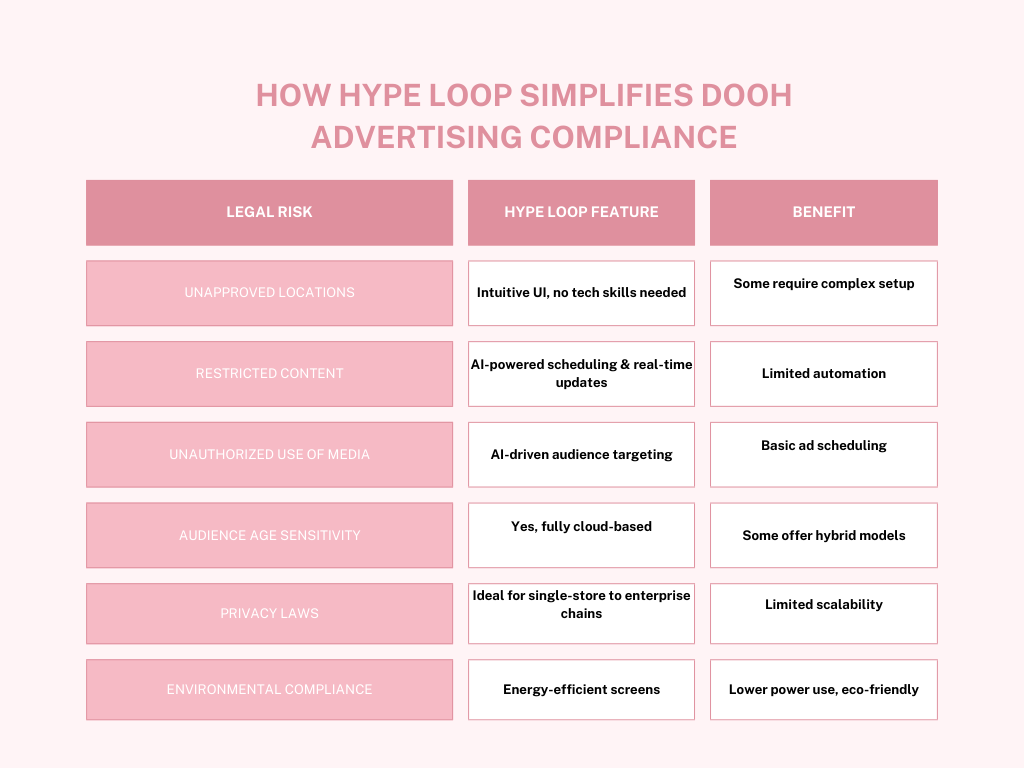
Whether you’re running DOOH marketing for a product launch or local event, Hype Loop ensures your brand stays within the law—without slowing down campaign execution.
🚀 Why Compliance Drives Better Results
Following legal rules isn’t just about avoiding fines. It’s a smart brand move.
- Higher trust: Consumers trust brands that play by the rules.
- More screen access: Compliant ads get approved faster and placed more often.
- Better brand safety: Avoid PR disasters or customer backlash.
With Hype Loop, you don’t just stay compliant—you grow responsibly.
🧭 How to Launch a Legally-Safe DOOH Advertising Campaign with Hype Loop
Getting started is simple:
- Sign up at Hype Loop as an advertiser.
- Create your campaign using our user-friendly dashboard.
- Select screens based on city, venue, or audience type.
- Upload your creative, ensuring it complies with the creative checklist.
- Set your schedule, budget, and preferred run times.
- Launch and monitor live performance while we handle all compliance checks in the background.
🔐 Your campaign gets screened by our legal compliance AI + human team before approval.
🔎 Common Legal Mistakes First-Time DOOH Advertisers Make
- Assuming all public screens are legal – Always verify with the screen provider.
- Using stock images without a license – Free doesn’t always mean legal.
- Ignoring city-by-city variations – What’s okay in Delhi may not fly in Mumbai.
- Overlooking screen brightness limits – Flashy content can break local laws.
- Tracking users without consent – Data laws are strict and evolving.
Avoid all of the above by using Hype Loop’s automated DOOH solution.
🧠 Final Thoughts: Stay Legal, Stay Visible
What is DOOH advertising if not the future of high-impact, real-world marketing? As this space grows, so does the legal landscape. Advertisers need a partner who understands both performance and compliance—and that’s what Hype Loop delivers.
Whether you’re launching DOOH ads for awareness, conversion, or event promotion, you need a platform that combines scale, speed, and legal peace of mind.
👉 Ready to go live?
Join Hype Loop today, launch your campaign tomorrow, and stay 100% legally secure while dominating city screens.
